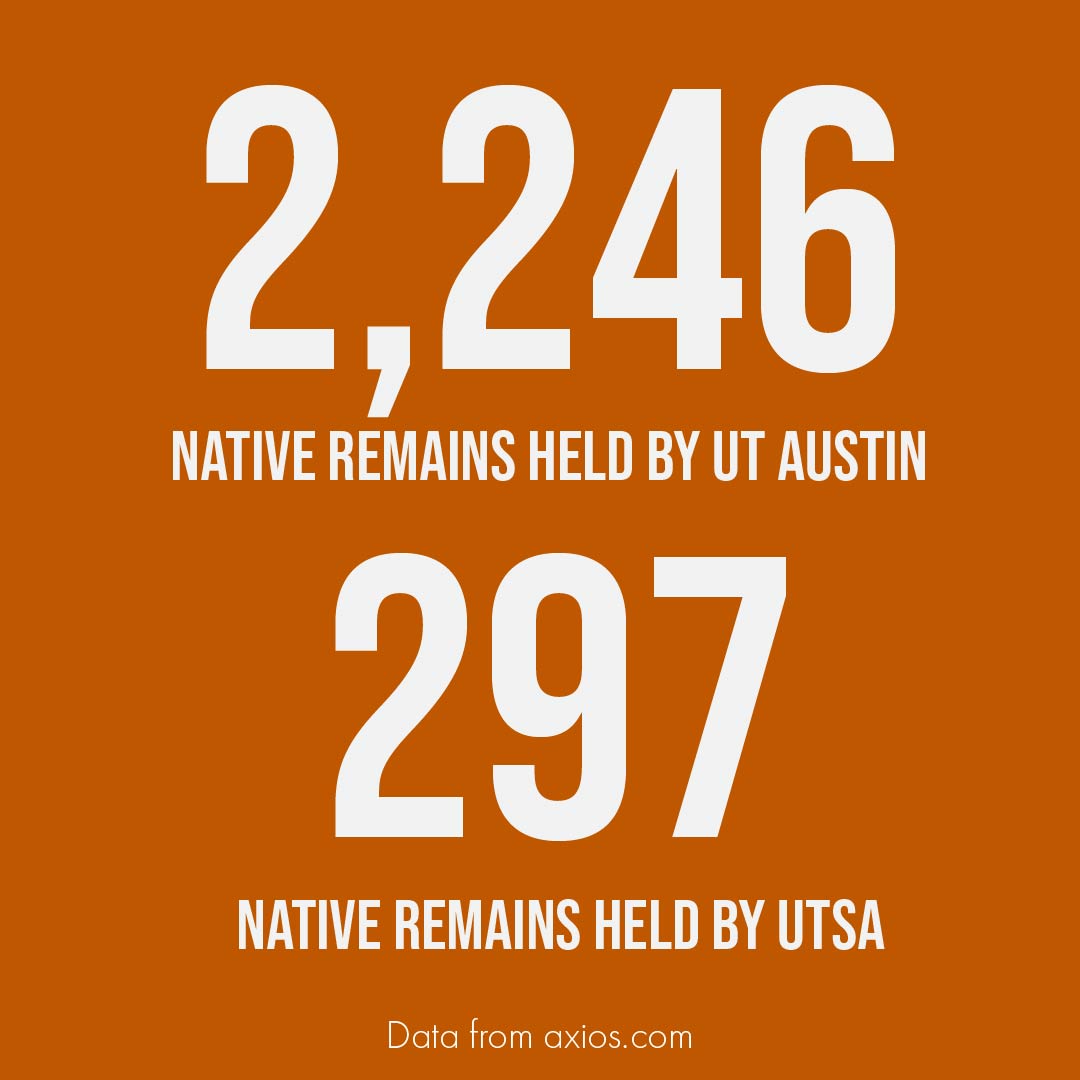The Native American Graves Protection and Repatriation Act (NAGPRA) of 1990 protects the cultural patrimony of Indigenous peoples in the United States, facilitating the return of human remains, sacred objects, etc., to their proper owners from organizations that receive federal funding, such as museums and universities. Despite the law being over 30 years old, Indigenous groups across the country continue to fight for their rightful repatriation.
The University of Texas at Austin holds the largest collection of Indigenous remains in the state, with over 2,000 remains held by their Texas Archaeological Research Lab (TARL). In comparison, UTSA holds less than 300 as of the end of 2022.
The Miakan-Garza Band, a Native American group from Central Texas, first called for the return of three sets of ancient remains from TARL in 2016. After delays and much lobbying, UT denied their request in 2020 on the basis that there was no “culturally identifiable information” that connected the sets of human remains to the band. TARL released a statement declaring their support for the NAGPRA and insisted that they would cooperate with its instructions, but only if there was a sufficient basis for repatriating the remains.
After their denial of the request, UT President Jay Hartzell wrote that the university would turn to the NAGPRA Review Committee for a recommendation that would “enable (UT) to offer the remains promptly for reburial.” To this day, the three sets of human remains remain in the hands of TARL. The Miakan-Garza Band has not given up, however, and continues to fight for the right to rebury their ancestors. They have held prayer walks at the UT campus, alongside various supporters, asking the university to reconsider its stance on the matter. Their struggle to be taken seriously is only one example of a system that mistreats the country’s native peoples.
The study of human remains is a key part of anthropology and its subfields studying the scientific and cultural evolution of humankind to understand its past and present. However, the field is problematic by its very nature, with an embarrassing history of ethnocentrism, White supremacy, grave robbing and all sorts of abuses against oppressed populations. It is of absolute importance that anthropologists put human decency and respect above their research interests and projects. Just because the field is not the swamp of racism and dehumanization it once was does not mean that it has achieved a haven in which it can conduct its scholarly inquiries without damage.
TARL has the biggest collection of ancient human remains, and the Miakan-Garza people are asking for three sets to return their spirits to their mother, the Earth. The denial of this request is not only dismissive and disrespectful, it is greedy. While it may be an academic issue for some, for the Indigenous nations who have had their history treated like a commodity, it is a human rights issue – and it should be for everyone, too.
To support the Miskan-Garza people, they ask that people write to President Hartzell and Fred Valdez, UT professor and director of TARL and ask them to keep their promise to return the remains.









Molly • Mar 7, 2024 at 3:57 pm
Not only was the repatriation request blocked by two federally recognized tribes, one of the three individuals was determined to be of African descent. Please do your research before calling people to action without all of the facts.